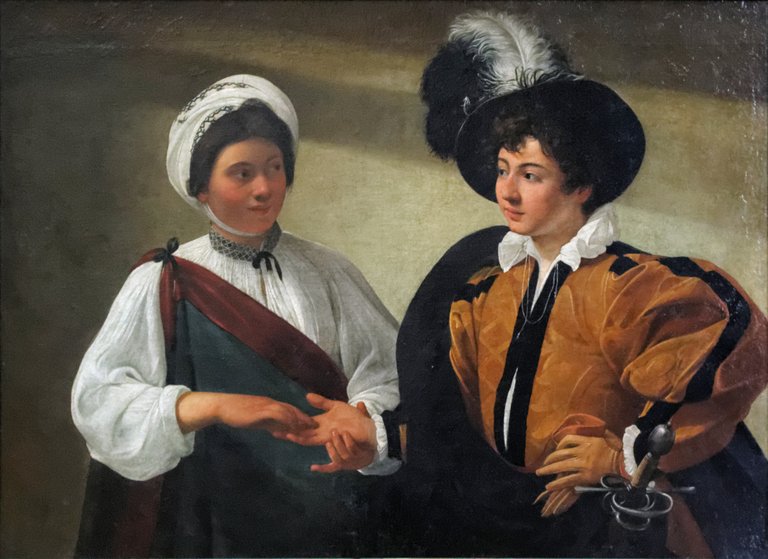A lot of people don't realise that Proof of Work is not actually the security in blockchain systems. The security, aka 'confirmations' is from checking cryptographic signatures. It is not actually a big job, the math is very well established and only takes tiny amounts of computing.
Proof of work is not simply certification of numbers.
It means that you had to do an incredible amount of calculations that simply cannot be done without a minimum amount of time.
Hence it is in fact a rate limiter. Satoshi devised this element of his scheme following a system of spam-limiting for email called Hash Cash. I remember when Hash Cash appeared, not long after Tor.
Proof of Work is actually just a means of making a lottery that is run by multiple, untrusted parties. A difficult mathematical problem, involving the generation of random numbers. There is of course criteria for this, you can't just spit any number at the blockchain network with the required number of zeros at the end, and get it approved. It usually has to satisfy a number of other things, like, for example, being a prime number, I believe this is a criteria. There is other criteria. The numbers are huge, beyond squillions.
Plus if it was already made, it will be rejected. Prime numbers are expensive to calculate.
The minimum requirements are 2 to the power of 256, for 32 bytes, for a basic elliptic curve cryptographic token. I am not sure how big the numbers are with bitcoin, or other PoW controlled mining systems, but I think they may be beyond 2 to the power of 256. I tried to put 2^256 in my calculator, and it made an error. This is why they are so big and difficult. As far as I know, they also have to be prime numbers.
But that is not all of the story
The unique and interesting innovation in Steem is not about the cryptography or the blockchain. The unique feature is engaging humans with each other.

Steem brings something to the table that the math boffins and cryptographers did not think of. It is, as I have explained, simple enough to verify signatures.
In fact, 'blockchain' just means a distributed database that new submissions to the database are vetted and not considered correct until multiple parties make a signature saying that the signature of the submitter of the new data is true. This is what the solution to the Byzantine Generals Problem at the centre of what is the core innovation of Satoshi - which actually was more or less solved 30 years earlier, but nobody thought of using it to cross-verify distributed databases.
Nobody even thought of distributed databases until the 90s!
What makes Steem new and interesting, is the way that it essentially makes humans arbiters of certain things within a blockchain.
First, we have the votes. Then, we have the voting of Witnesses. The applications beyond this are innumerable! Humans are the best judges. I have also alluded to this in my article about steem-is-not-just-an-ad-hoc-corporate-system-but-also-a-prototype-for-a-government
It just happened that today I encountered a new thing called Tauchain https://steemit.com/tauchain/@dana-edwards/interview-about-tauchain-and-agoras-with-ohad-asor-2016 - for the simple version, this is taking the ethereum concept beyond computer code into artificial intelligence. This is very important. But I was studying CS back in the day when the concept of 'correctness' was evolved. We are nowhere near having a codified system of understanding what that actually is. Though I am so very glad that someone has finally started talking about it.
What I am saying, is that humans can do a lot of work towards judging what is valid. The genius of Ned and Dan's scheme is all about letting humans judge each other. When you start down this track, you realise that there is much more applicable to our every day lives, that humans are good judges for, in the collective.
Votes in the blog system, are like validation of work.
Value is subjective, and machines really cannot do this, and never will be able to.
Anyone who thinks that machines can take our jerbs. Sorry. We earn the money, we sacrifice the money for what we think is of equal value. No computer system can replace that.
Steem really is just the beginning of this concept. Dan quite clearly understands how it is relevant to governance: https://steemit.com/government/@dantheman/what-does-a-truly-decentralized-government-look-like
Austrian economists have been banging on for a long time, and Ludwig von Mises especially really nailed it down. Value is subjective. The most important things about human life are about value. But you can't and never can establish a standart for these.
While on one side, I like to say, Steem is not just about the blog and the voting system...
...on the other side, I think that this is a valuable and important new addition to the process. Absolutely invaluable.
I think, actually, that the genius of this is beyond measure. I don't fawn at the feet of the Ned and the Dan over this. They saw something that I hadn't even thought of, that was off in the fog beside my own thinking processes.
Note
All rewards henceforth until I have secured necessary supplies to travel to Amsterdam are going as much as possible into getting me a thermal shirt, beanie, scarf and a sleeping bag. Any help will be much appreciated.

We can't stop here! This is Whale country!
Loki was born in Australia, now lives in Sofia, Bulgaria. IT generalist, physics theorist, futurist and cyber-agorist. Loki's life mission is to establish a secure, distributed layer atop the internet, and enable space migration.
I'm a thoughtocaster, a conundrummer in a band called Life Puzzler. I've flipped more lids than a monkey in a soup kitchen, of the mind. - Xavier, Renegade Angel
*
All images in the above post are either original from me, or taken from Google Image Search, filtered for the right of reuse and modification, and either hotlinked directly, or altered by me
I have taken this concept and run with it in my sci-fi series for Steemit, Asimov's Ghost.
In that story we all live on the virtual Quantum blockchain, and get rewarded in personal coin for proof of reality rewards.
Cg
Nice!
I have this relationship with my ideas where I am just their midwife... After the bastards are out, I mainly want to see them flourish in the world and do their magick :) Mainly, I just like the disturbance of apple-carts that my ideas tend to cause. I didn't take this moniker for nothing, it's my passion and I have a personal vendetta against apple carts and all the misery they cause.
Excellent article l0k1! I really enjoyed it. I feel the same way about Steemit and its applicable uses. Ingenious.
humans are corruptible, so this should be seen as a big experiment still
They are, but an open, completely transparent network voting system makes it hard to hide mischief.
Awesome post. I think my all time fave on steemit so far with lots of great info that I loved learning.
Where are you getting this prime number stuff?
Well, you have a point - with the difficulty level settings with bitcoin, the first and many more bits have to be zero, so they can't be prime numbers. I haven't studied the mathematics of these tokens so well that I can describe exactly what the characteristics of these numbers is, but I do know that you can't just throw any number out with the requisite zeroes, the number itself contains proof that the work was done in some way.
The number is practically random, what is unique about it is that putting it along with the header of the last block through the hash algorithm results in another number with the prerequisite zeros.
Loki - I love you, man, but my eyes glaze over when people talk about math and blockchains, how they work and all the cogs. So I just wanted to 1. swing by, 2. give a little upvote love and an...um... 3. leave an appropriate comment. two out of three ain't bad :)
Well, it's a complex subject. But I don't think that reputation is that complicated. I started up quite an avid discussion about this, by implying that historically, women had more reason to devise means of obfuscating communications. The end result was pretty clear. Obviously they did. But that does not mean that this is still the case.
In these times, in fact, it might even be reversing. But you can definitely say that trust is an issue that everyone needs to concern themselves with, and reputation is an extension of trust.
Thanks for the upvote, and I hope I can continue to keep the thinking happening.
I thoroughly enjoyed this!